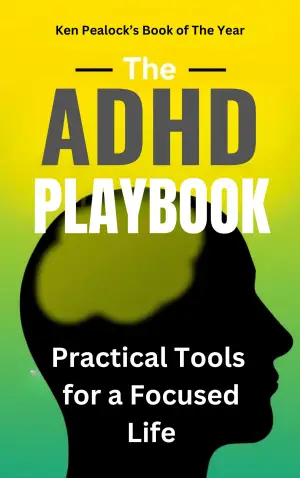Review: This Is Your Mind on Plants by Michael Pollan
As a long-time reader of Michael Pollan, I was eager to dive into This Is Your Mind on Plants, intrigued by the promise of exploring our complex relationships with psychoactive substances. Pollan has always had a knack for illuminating the intersections of food, nature, and culture, and I hoped he would bring that same insight to the world of drugs. Unfortunately, what I found left me with mixed feelings and a nagging sense of disappointment.
The book is divided into three sections, focusing on opium, caffeine, and mescaline, each recounting Pollan’s personal experiences growing and consuming these plants. The first segment—a decades-old piece revisited—centers on his cultivation of poppies, leading to a disquieting realization: engaging in this ‘hobby’ could jeopardize his life, family, and finances. His recounting of legal advice to censor his work is raw and striking, compelling readers to grapple with the very real implications of drug laws in America. Yet, while Pollan’s insight seems timely, it felt eerily tone-deaf in the context of the drug war’s historical exploitation of marginalized communities. This association leaves me feeling that Pollan, despite his evident knowledge, may be presenting a one-dimensional narrative that overlooks deeper societal issues.
As I flipped to the sections on caffeine and mescaline, I hoped for a captivating exploration steeped in the richness of his earlier work—How to Change Your Mind. Instead, I encountered a somewhat clinical narrative. Pollan’s description of withdrawal symptoms sparked little excitement, and the mescaline section felt like a checklist of experiences rather than a journey into the plant’s intricacies. I couldn’t shake the feeling that he was sharing tales as one might recount a college experience, lacking the profound connection that deeper exploration of the subject matter demands. His use of quotes around "high" felt jarring, suggesting an air of detachment that made it hard to relate to his journey.
What strikes me most is Pollan’s potential to be a thought leader in this genre; while he has the stature to bring drug discussions into the mainstream, it also feels like an exercise in privilege. It’s almost as if I’m reading the experiences of a late-blooming boomer learning about the culture we, the curious and often marginalized, have long known. Pollan could have given more depth to the nuances of these substances and their societal implications, rather than presenting them through his eyes as a newfound explorer.
While I appreciated Pollan’s previous works that tackled significant questions of consciousness, This Is Your Mind on Plants often feels more surface-level. It’s a great starting point for those unfamiliar with the subject, but for those of us already invested in the discourse of drug literature, it left much to be desired.
Ultimately, I’d recommend this book to readers seeking a light introduction to psychoactive plants, but for a richer narrative on psychedelics, I encourage you to explore works by those who have been deeply embedded in these cultures, like Jesse Jarnow or Robert Greenfield. As I reflected on my reading experience, I found myself craving narratives that resonate more with the lived realities of drug users, rather than the sanitized perspectives often reserved for those with privilege. If you choose to engage with these plants, remember the power they hold—and educate yourself; as Pollan himself lays bare, knowledge can indeed change your mind.
Discover more about This Is Your Mind on Plants on GoodReads >>















